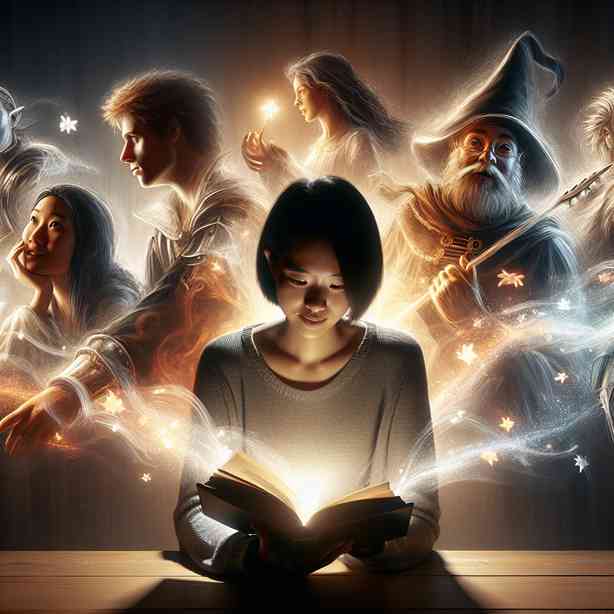
Characters in stories, whether they appear in literature, film, or video games, often evoke strong emotional attachments similar to those we feel for real people. This phenomenon can be attributed to several psychological and emotional factors that shape our experiences with fictional characters. Understanding why we miss these characters like real people involves delving into the complexity of human emotions, our engagement with narratives, and the way storytelling shapes our connections.
At the core of our attachment to characters is the process of empathy. When we engage with a story, we not only observe the characters but begin to feel their emotions and share in their struggles. This empathetic bond makes us invested in their journeys, as if they were our friends or family. The more relatable and complex a character is, the stronger this connection becomes. For instance, characters who experience growth, demonstrate vulnerability, or face significant challenges often resonate deeply with us. This connection fosters a sense of intimacy, making us feel as though we truly know these characters on a personal level.
Moreover, the contexts in which we encounter these characters can play a significant role in our emotional responses. Many of us form connections with characters during pivotal moments in our lives—during challenging times, personal growth, or transformative experiences. For example, a character who faces adversity may symbolize resilience and courage, which, during a difficult period in our lives, can inspire us profoundly. This shared journey further solidifies our emotional ties and leaves a lasting impact when the story concludes.
The end of a story often leads to feelings of loss and nostalgia, which are reminiscent of our feelings when parting with real people. Saying goodbye to a character who has accompanied us through laughter, tears, and triumphs can feel like losing a friend. This sense of loss can intensify when we have invested significant time and emotional energy into the narrative. As the world of the story closes, we find ourselves reflecting on the moments shared with these characters, the lessons learned, and the experiences gained. The yearning to revisit those times can evoke a melancholic nostalgia, making us long for their absence, similar to how we miss our loved ones when they are not around.
Another contributing factor to this phenomenon is the role of our imagination and creativity in engaging with stories. When we immerse ourselves in a narrative, we often envision the characters beyond the confines of the text or screen. They take on lives of their own in our minds—what they might do in various situations, how they would respond to different challenges, or even how they might evolve in alternate storylines. This imaginative engagement can create a vivid and personal relationship with characters, making their eventual departure from our narrative experience all the more poignant.
Furthermore, the medium through which we experience characters can influence our emotional attachment. For instance, video games offer a unique opportunity for deeper interactions with characters through gameplay and decision-making. Players often invest hours into developing their relationships with characters, making choices that impact the story’s outcome. This interactive engagement fosters a sense of agency and investment, enhancing our emotional ties. The sense of control and involvement in a character’s fate can create a profound sense of loss when the game concludes, leading players to feel a deep connection akin to that of real friendships.
Stories often serve as mirrors, reflecting our own experiences, struggles, and triumphs. Characters may embody aspects of ourselves or represent traits we aspire to possess. When we resonate with a character’s journey, we are not just observing their life; we are engaging with our own narratives and identities. This self-reflection can create powerful connections, resulting in feelings of camaraderie and understanding. The more aligned we feel with a character’s journey, the more likely we are to miss them once the story reaches its conclusion, as they represent parts of ourselves that we cherish.
Moreover, the social elements of storytelling cannot be overlooked. Humans are inherently social beings, and stories are often shared experiences. Engaging with characters within the context of a broader community—whether through book clubs, fandoms, or online forums—can enhance our connections to them. These shared discussions and collective memories further intensify our emotional bonds, as we collectively mourn the departure of beloved characters and celebrate their impact on our lives. The shared experience of missing a character can create a sense of belonging among fans, reinforcing our attachment to both the characters and the community at large.
As we navigate the complexities of our emotions and relationships with fictional characters, it is essential to acknowledge the therapeutic aspects of these connections. Characters often provide comfort, inspiration, and escapism from the stresses of daily life. They can serve as role models, guiding us through challenges and helping us process our emotions. When we miss these characters, it reflects not only a longing for their presence but a desire for the comfort and wisdom they brought into our lives. This emotional support can be especially significant during times of change or uncertainty.
In conclusion, the reasons we miss characters like real people are multifaceted and deeply rooted in our emotional and psychological experiences. Through empathy, shared experiences, imaginative engagement, and social connections, we forge profound relationships with fictional beings who resonate with us on various levels. They accompany us through our journeys, providing companionship, inspiration, and reflection. As we say goodbye to these characters, we bear witness to the impact they have left on our lives and the ways they have enriched our understanding of ourselves and the world around us. The longing we feel in their absence is a testament to the power of storytelling and the emotional depth that can be found in the connections we create, even with those who exist solely within the realm of fiction. These characters become woven into the fabric of our lives, leaving a lasting legacy that continues to shape us long after their stories have ended.


